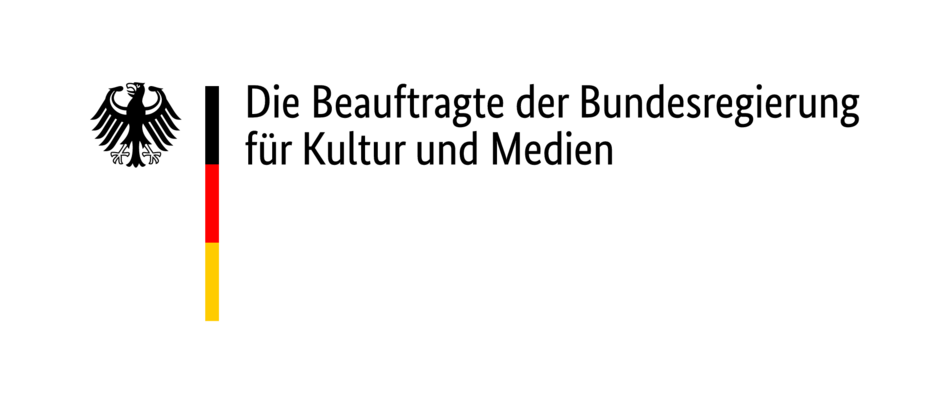Information on the German Federal Cultural Foundation (Kopie 1)
The German Federal Cultural Foundation is one of the largest publicly funded cultural foundations in Europe. With an annual budget of 35 million euros financed by the Federal Government Commissioner for Culture and the Media (BKM), the Foundation has funded some 4,000 projects of contemporary culture since it was established by the German federal government in March 2002. It is a civil-law foundation with headquarters in Halle an der Saale, Germany.
The primary task of the German Federal Cultural Foundation is to promote innovative programmes and projects in an international context. Cultural exchange and cross-border collaboration are central to its funding activities. General Project Funding allocates up to ten million euros per year to support a discretionary number of projects in all artistic fields. The Foundation also offers Programme-Based Funding to support larger-scale cultural projects on issues of societal significance, e.g. climate change, digitalisation, structural transformation, diversity, and superregional and international collaboration. By granting funding for multiple years at a time, the Foundation provides selected cultural institutions and internationally renowned festivals – so-called “cultural beacons” with a high degree of planning security.
Funding
General Project Funding
General Project Funding accepts applications from creative artists twice a year to finance projects in all artistic fields: visual and performing arts, literature, music, dance, film, photography, architecture and New Media. Up to ten million euros is allocated each year to support large, innovative projects in an international context.
Current programmes, funds and initiatives
The German Federal Cultural Foundation initiates programmes, funds and projects lasting several years, such as the nationwide pilot project Carbon Footprinting in Cultural Institutions (opens in a new window) which enables cultural institutions to calculate and reduce their individual carbon footprint. The funding programme Zero pursues a similar goal by encouraging creative artists to develop ways to produce art projects in a climate-neutral manner.
With the Digital Culture (opens in a new window) fund, the Foundation has launched a programme whose goal is to develop and implement future-oriented digital projects in cultural institutions. In response to the challenges caused by the Covid-19 pandemic, the Foundation is actively supporting the creation of new digital and hybrid dialogue and exchange formats with the dive in (opens in a new window) programme.
The programme 360° – Fund for New City Cultures strives to encourage greater diversity in the cultural sector, while hochdrei aims to transform municipal libraries into places of civic participation and encounter. The programme TRAFO – Models for Culture in Transformation strengthens cultural institutions in infrastructurally weak rural regions. In the New Patrons programme, local organisations are given the financial means to commission artworks from internationally renowned artists.
The Danceland – Guest Performance Partnership Fund was created to expand the range of contemporary dance productions available to audiences in small and mid-sized cities, or even make them possible to begin with. The Doppelpass Fund promotes joint ventures between city theatres and the independent scene. With its programme Jupiter – Performing Arts for Young Audiences, the Foundation wishes to strengthen children’s and youth theatre productions, young opera and dance. The nationwide platform for dialogue and exchange YUNIK – Conference for Cultural Education promotes networking between participants in the area of cultural education.
The German Federal Cultural Foundation supports transcontinental projects and residencies with the programme TURN2 – Artistic Co-Creation between Germany and African Countries.
With the programme DOMiDLabs, the Foundation encourages residents of immigrant descent to engage in civic participation as they work to establish a “House of Immigration Society” in Cologne-Kalk by 2024. And with its Initiative for Ethnological Collections, the Foundation continues supporting the efforts of German museums to give their collections a contemporary and global orientation.
Cultural Beacons
By awarding funding for multiple years at a time, the German Federal Cultural Foundation provides outstanding cultural institutions and festivals of international renown with a high degree of planning security. These so-called “cultural beacons” include the documenta in Kassel, the Berlin Theatertreffen, the Donaueschingen Music Festival, the Ensemble Modern, the Dance Congress, the Berlin Biennale, the transmediale and the World Cinema Fund.
Financed by the Federal Government Commissioner for Culture and the Media
The German Federal Cultural Foundation is funded by the Federal Government Commissioner for Culture and the Media upon the resolution of the German Bundestag.



![[Translate to English:] Gleich lange vertikale Linien in verschiedenen Farben und Breiten](/fileadmin/_processed_/4/3/csm_220727_Diversita__t_KeyVisual_2_7e4ec402a3.jpg)